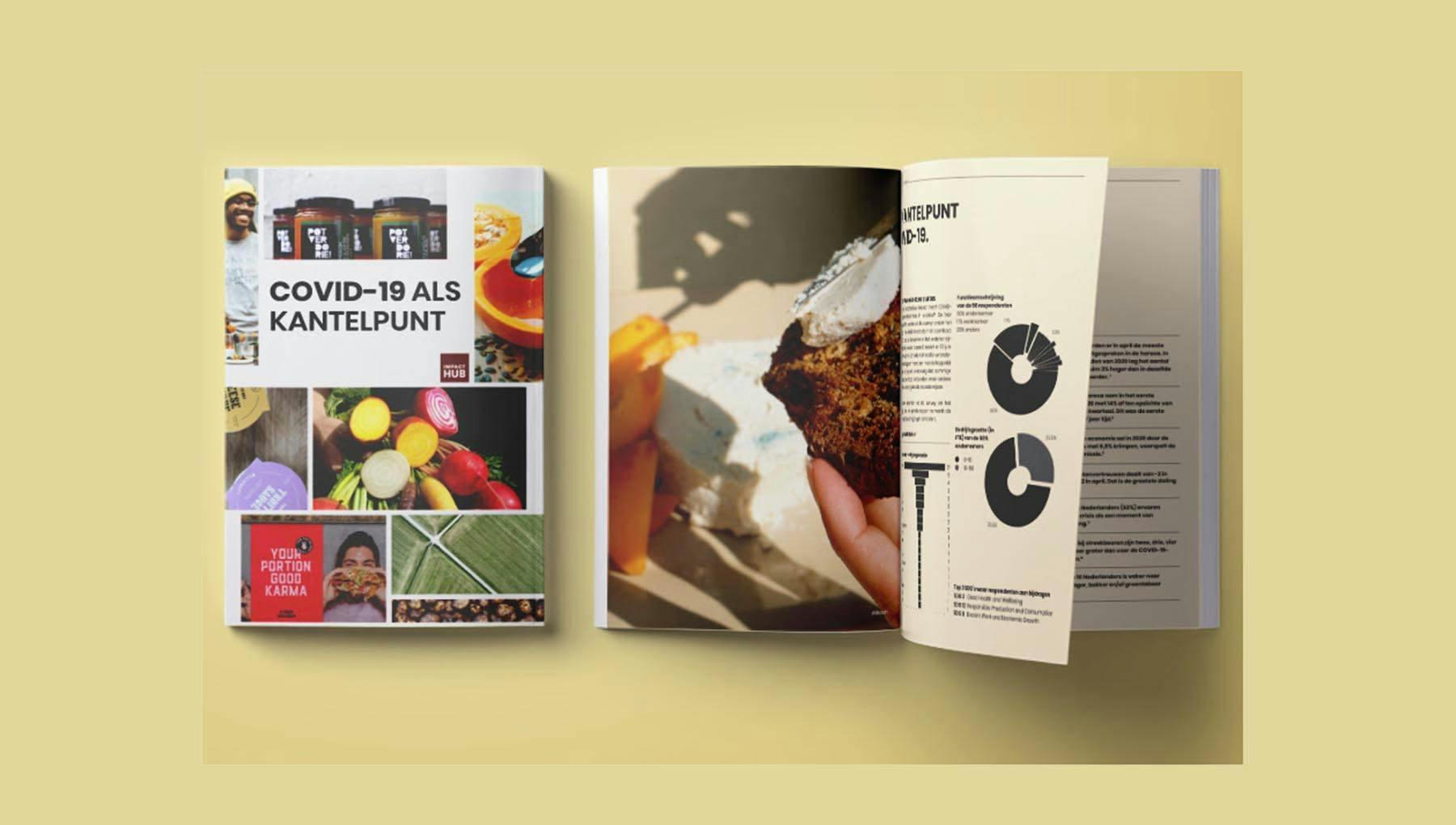New report on food entrepreneurs and the COVID-19 crisis
A report powered by Amsterdam Impact, the City of Amsterdam’s impact entrepreneurship programme, the DOEN Foundation and the Ministry of Agriculture, Nature and Food Quality investigates how impact entrepreneurs in the food sector and their stakeholders were affected by the COVID-19 crisis.
COVID-19 brought the hospitality industry to a standstill. As of early July, one in five restaurants, cafés, bars and caterers could not afford to reopen and industry’s yearly turnover is predicted to decline by over 30 percent. Dutch potato farmers found themselves with a surplus of one billion kilograms and meat producers with cold stores filled to the brim. The fragility of supply chains, the dominance of climate-intensive agriculture, alarming levels of food waste — the COVID-19 crisis amplified many of the food sector’s existing issues.
To assess the effects of the crisis, Impact Hub Amsterdam conducted in-depth research using input from 56 impact entrepreneurs and stakeholders in the food sector, including more than 20 Amsterdam-based organisations. The research uncovered plenty of reasons for optimism. In an uncertain and rapidly changing world, sustainable food entrepreneurs proved quick to adapt, eager to collaborate, and focused on long-term resilience.
Read the COVID-19 as a Tipping Point report (in Dutch with an English summary).
COVID-19’s impact on entrepreneurship
Food entrepreneurs whose revenue streams flowed from the shuttered hospitality and events industries responded to the crisis by accelerating collaboration, distribution and development. Among the most common partnerships were online, direct-to-consumer food boxes, such as Support Your Locals or the Karma Box. The increased digital reach brought new demand and focus, or led to the scaling of online sales. After providing its plant-based fast cuisine to healthcare workers, restaurant Jack Bean is considering a healthy meal delivery service, while vegan cheese producer Willicroft’s orders doubled thanks to its new online store.
Successful boxes, although not a permanent fix, embody the power of collaboration. The COVID-19 crisis has also lowered the cooperation threshold for entrepreneurs and their stakeholders. As a result of the webinar we hosted in the research phase, impact enterprise Too Good to Go connected with the Slow Food Youth Network. In less than two weeks, they managed to fill up the NDSM Wharf with 20,000 kilograms of potatoes that would have otherwise been wasted. The potato mountain was sold in just a few hours.
Next steps in accelerating the food transition
In spite of positive developments, the transition to a resilient food system is not a given. The urgency for change may decrease. Newly built coalitions and consumer interest in local food may not hold. So how can we work together as an ecosystem to maintain and even accelerate the pace of change?
Getting more ecosystem actors to collaborate from an equal footing is key. “It is now more important than ever to strengthen the connection between social enterprises and other companies. In this way, we can further develop the ecosystem, make it more diverse and co-create solutions as equal partners”, says Ellen Oetelmans, Program Manager of Amsterdam Impact, the City of Amsterdam’s impact entrepreneurship programme.
Responsible procurement boosts the sales and impact of sustainable food entrepreneurs. “In these times, we are calling for the purchase of products and services from social entrepreneurs as part of Buy Social activities we co-create with Social Enterprise NL”, says Ellen. “As finance providers, governments, network organisations with sustainable ambitions we must be at the forefront and lead by example,” adds Manon Klein, Impact Hub Amsterdam’s Programs Lead.
Adjusted financing criteria that, in addition to economic returns, account for social and environmental value, can give sustainable food entrepreneurs a competitive boost. For instance, investor Orange Capital Partners recently decided that Amsterdam-based lunch restaurant Happy Tosti could pay part of its rent in social impact. “Working on social and environmental value is often welcomed, but it does not always translate into returns or prices that can compete with businesses that do not take these values into account”, explains Manon.
New regulations that translate into financial support can also give the transition momentum. “A piece of legislation and new regulations are essential for startups and new partnerships. Campaigns and awareness play a role, but the most important is money for support. The risk for sustainable farmers, for example, is greater in the beginning, when they may generate less income. This requires transition capital,” adds Maarten Derksen, program manager at the DOEN Foundation.
More recommendations for the food transition?
Read the full report for additional insights from finance providers (Rabobank), ecosystem connectors (Transitiecoalitie Voedsel) and academic researchers (Wageningen University and Aeres Hogeschool Almere).
